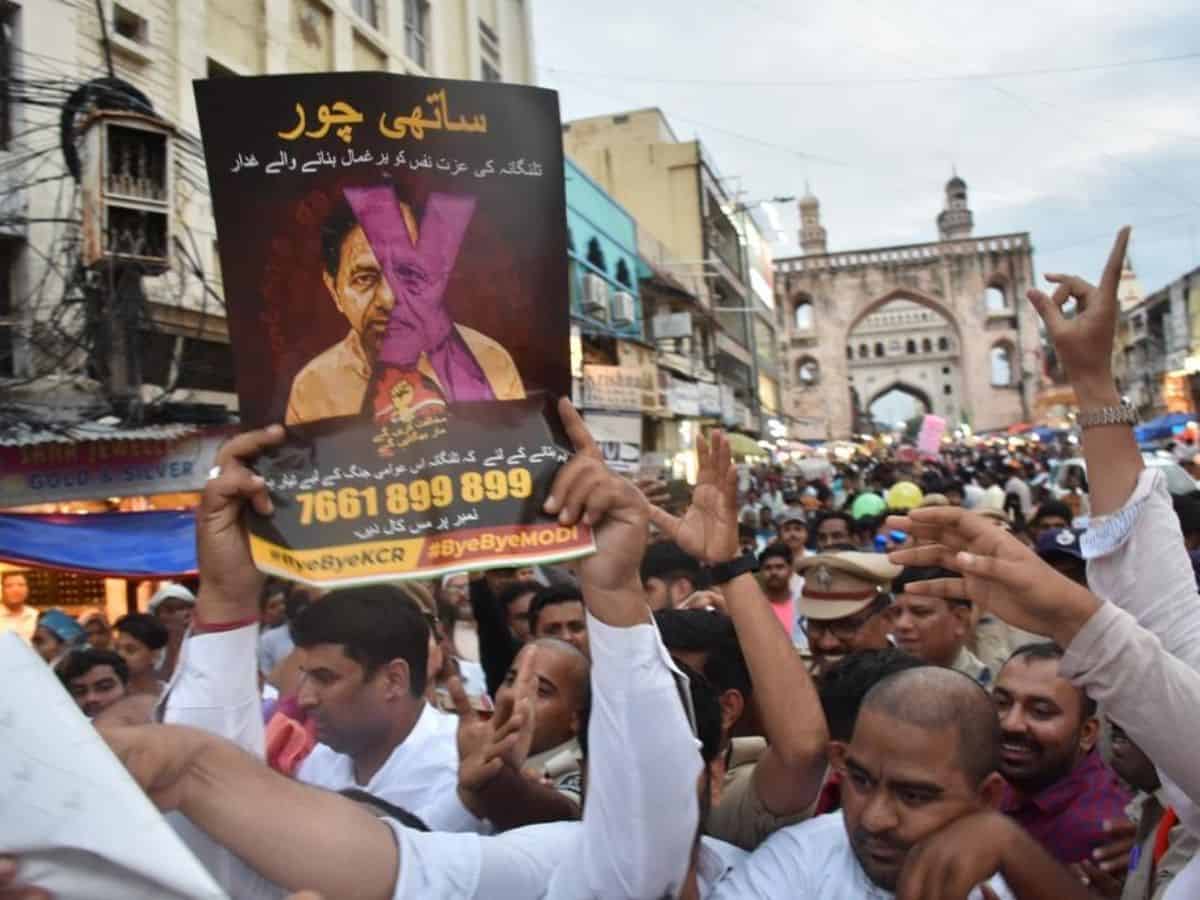
Sardar Vallabhbahi Patel, the first home minister of independent India and the deputy PM, was so concerned with Hyderabad to the point he was willing to trade Kashmir with Hyderabad when Jinnah got involved in Hyderabad negotiations. Nehru had other plans.
Much before the Congress party decided to take over Hyderabad militarily, they conceived a series of questionable measures to destabilize the state of Hyderabad internally.
Mohammed Hyder, the then collector of the Osmanabad district of Hyderabad writes about the border camps set up along the NW frontier of Hyderabad soon after August 15th, 1947. The goal of these camps was to carry raids inside the territory and destabilize the infrastructure, law and order, etc.
Border raids included but were not limited to attacks on police outposts, theft of weaponry, disrupting railway communications, destruction of customs outposts, etc. Many of these raids are documented. “So much for following the footsteps of Mahatma Gandhi” remarks Laiq Ali, the then Prime Minister of Hyderabad in his book.
Another arm-twisting mechanism the Congress adopted was the economic blockade of essential goods in Hyderabad. Import of rice, salt, medicines, medical supplies, petroleum, and diesel for transport and industry, chlorine for water treatment, etc. were among the list of essential items that were stopped from being imported into Hyderabad. Imports from sea also remained stuck at different ports of India.
Exports from Hyderabad were also stalled and as a result, the state had amassed a massive amount of groundnuts. It is in this context that an Australian private jet pilot working for a British company, Sydney Cotton had cut a deal with Hyderabad to fly in essential items in exchange for the surplus groundnut. He ended up doing more adventurous things for Hyderabad and became one of the people to inspire the “James Bond” character in films.
K.M. Munshi in his memoirs reminds us that the entire economy of Hyderabad was bound up with India’s’ owing to the British paramountcy over the state. Seen from this perspective, one can wonder if the dream of an independent Hyderabad was ever a practical possibility.
A federation on the other hand was still workable.
Moses Tulasi is a Hyderabad-based filmmaker with a keen interest in history and culture. He occasionally contributes to Siasat.com.



